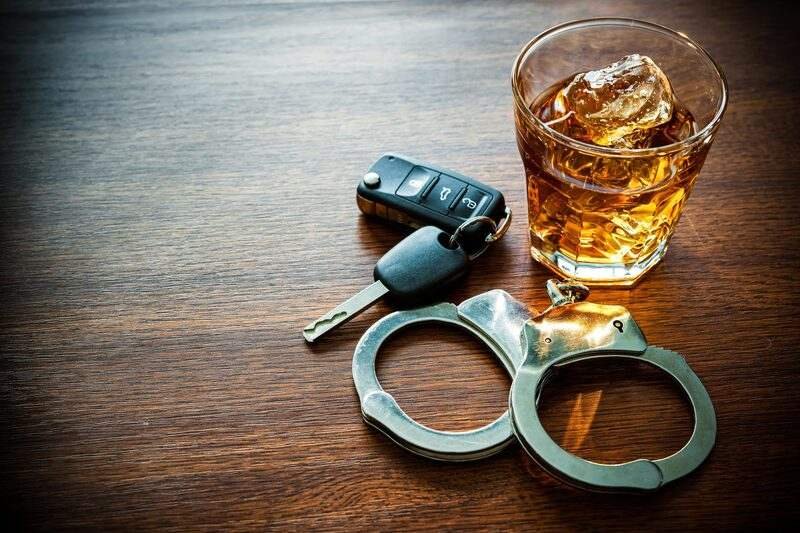Getting arrested for a DUI in Florida can be an overwhelming experience—especially if it’s your first time facing the criminal justice system. Understanding what comes next can help you prepare for the road ahead and make informed decisions that could impact your future. Working with the best criminal defense attorney in Florida can give you the guidance and support you need to navigate this difficult time and protect your rights.

This guide outlines what typically happens after a DUI arrest in Florida, step by step.
Trusted Legal Support Is Within Reach
📞 Call: 772-828-1143
📧 Email: info@jordizaragoza.com
📍 Visit: 130 S Indian River Dr, Suite 202, Office 218, Fort Pierce, FL 34950
Step 1: The Initial DUI Stop and Arrest
A DUI arrest usually begins with a traffic stop. If a law enforcement officer suspects impairment, they may ask you to perform field sobriety tests or submit to a breathalyzer. If the results suggest a blood alcohol concentration (BAC) of 0.08% or higher—or if the officer observes signs of impairment—you may be placed under arrest.
Refusing to submit to a breath test may result in automatic license suspension under Florida’s implied consent laws, even if you’re later found not guilty.
Step 2: Booking and Jail Time
After arrest, you’ll be taken to the local jail for booking. This process involves fingerprinting, taking your mugshot, and entering your information into the system.
In most first-time DUI cases, a person is held until:
- They post bail
- See a judge,
- Or until 8 hours have passed.
Step 3: Driver’s License Suspension
One of the first consequences is an administrative suspension of your driver’s license. This is issued by the Florida Department of Highway Safety and Motor Vehicles (DHSMV), not the criminal court.
You have 10 days from the date of arrest to request a formal review hearing to challenge this suspension. If you don’t act within that window, your license may be suspended for:
- 6 months for a first-time DUI,
- if you refused testing or are a repeat offender.
Temporary driving permits may be available under certain conditions, but they are time-sensitive and situation-specific.
Step 4: Arraignment and Charges
Your first court appearance is called an arraignment, where you’ll be formally charged and asked to enter a plea:
- Guilty
- Not guilty
- No contest
Pleading guilty or no contest without fully understanding your options can have lasting consequences. Many people choose to consult with a criminal defense lawyer before this hearing to better understand their rights and defense strategies.
Step 5: Pre-Trial Motions and Discovery
Once the case moves forward, there’s a discovery phase where evidence is exchanged. This may include:
- Police reports
- Breath/blood test results
- Dashcam or bodycam footage
- Witness statements
A skilled attorney may file pre-trial motions to suppress evidence, challenge probable cause, or request case dismissal under certain circumstances.
Step 6: Plea Negotiations or Trial
Depending on the case, you may:
- Accept a plea deal that reduces the penalties,
- Proceed to a bench trial or jury trial.
Florida takes DUI offenses seriously. Even first-time convictions can carry:
- Fines
- License suspension
- Probation
- Mandatory DUI school
- Possible jail time
Each case is unique. What may seem like a straightforward situation could involve errors in police procedure, improperly calibrated breathalyzers, or other weaknesses in the state’s case.
Step 7: Sentencing and Penalties
If convicted, penalties are influenced by various factors:
- Prior offenses
- BAC level
- Whether there was an accident
- Whether anyone was injured
Florida DUI penalties may include:
- Up to 6 months in jail (1st offense)
- License suspension up to 1 year
- 50 hours of community service
- Ignition interlock device installation
- DUI school and substance abuse evaluation
Step 8: Post-Conviction Options
Even after a conviction, there are legal remedies that may still apply:
- Appeals based on legal errors
- Post-conviction relief motions (if new evidence emerges or ineffective legal representation is proven)
- Expungement or sealing in very limited situations
Knowing your post-conviction options can make a real difference in protecting your long-term record, especially for employment or professional licensing.
Why Knowing These Steps Matters
A DUI arrest can have lasting consequences—from driving privileges to job opportunities. Understanding the legal process helps individuals:
- Avoid missed deadlines (like the 10-day license suspension appeal)
- Protect their legal rights
- Make informed decisions
No two DUI cases are exactly alike. Seeking professional guidance doesn’t mean committing to a legal battle—it simply means knowing your options before making life-changing decisions.
Have Questions About Your DUI Case?
If you’ve been arrested for DUI in Florida and aren’t sure what comes next, it’s okay to seek guidance. You don’t have to figure it out alone.
For information about your rights, the legal process, or what to expect from your case, consider speaking with a defense attorney experienced in Florida DUI law.
- 📞 Call: 772-828-1143
- 📧 Email: info@jordizaragoza.com
- 📍 Visit: 130 S Indian River Dr, Suite 202, Office 218, Fort Pierce, FL 34950
Frequently Asked Questions (FAQs)
1. How long does a DUI case take in Florida?
Most DUI cases take anywhere from a few months to over a year, depending on the complexity, court schedules, and whether the case goes to trial or ends in a plea deal.
2. Can a DUI be reduced or dismissed in Florida?
Yes. Depending on the circumstances, some DUI charges can be reduced to reckless driving or dismissed entirely, especially if there were procedural errors or weak evidence.
3. Will I go to jail for a first-time DUI in Florida?
Not necessarily. Many first-time offenders may avoid jail time through probation, DUI school, or plea agreements. However, jail is still a legal possibility, particularly if aggravating factors are involved.
